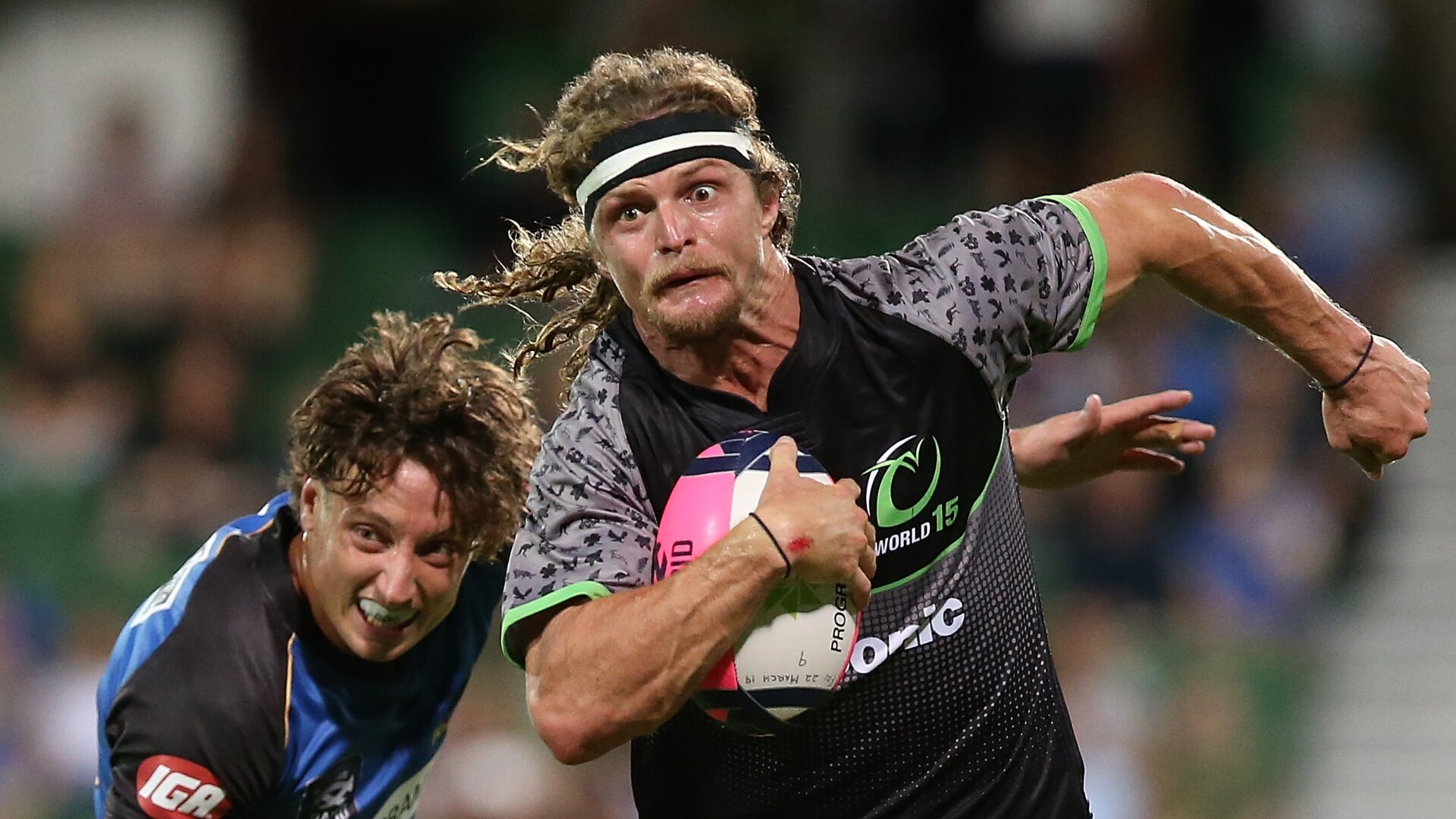New rules, power tries and the Honey Badger's return - but what's Global Rapid Rugby really like?

The re-branded Global Rapid Rugby has lived up to its promise of frenetic action, with Western Force defeating the World XV 26-16 in a pulsating opening match of the showcase series at HBF Park.
New rules designed to speed up the game helped fuel an energetic contest with the Force running in four tries to two against the invitational side led by former Wallabies coach Robbie Deans.
The on-field pace mirrored the off-field entertainment. In a familiar spectacle to last year’s formerly named World Series Rugby, the lively crowd of 11,368 were fired up after the pre-game fireworks and dance show.
The World XV, boasting more than 300 Test caps, had the early running with left flanker Michael Oakman-Hunt silencing the crowd and scoring a try in the seventh minute.
But the Force countered shortly after through a try from full back Jack McGregor.
After a stalemate, Brad Lacey put the Force back in front just before half-time but a power try worth nine points from Inga Finau moments later gave the visitors the momentum at the long break.
The power try, a new rule, was rewarded when a play began inside a team’s defensive 22 metre line.
World XV’s Nick Cummins, the former Wallaby winger and reality television star, came on after half-time and received fanfare every time he touched the ball against his old team.

He showcased his brute strength on several occasions but the Force had the answers with the only two tries of the second half.
Force coach Tim Sampson was satisfied with his team’s winning start.
“Our composure and patience when we got into good attacking positions was pleasing,” Sampson said.
“First game can always be tricky but I think we controlled things well and are happy about tonight.”
The Force were axed from Super Rugby at the end of 2017 prompting billionaire mining magnate Andrew Forrest to pour in millions to revive the franchise.
The five-team tournament this year continues a push into Asia with the inclusion of teams from Singapore and Malaysia.
The earlier announcement that Japanese club Sunwolves will be culled from Super Rugby after the 2020 season added intrigue over the future makeup of Global Rapid Rugby.
The competition is expected to expand to at least eight teams in its first full season next year.
Continue reading below…
You may also like: Raelene Castle on Sunwolves axing
Deans said the new rules would aid the competition. “It’s a good element for the game for players to look to play positively,” he said.
“Once the crowds understand (the new rules), they will learn to love it.”
The Force play South China Tigers at home next Friday night.
AAP
Watch: Brumbies coach Dan McKellar speaks ahead of Reds Super Rugby clash

































